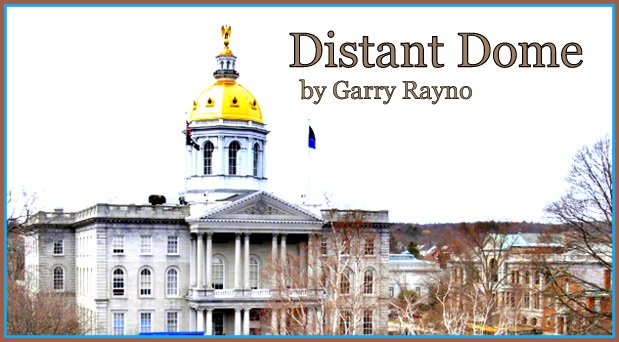Distant Dome is co-published by Manchester Ink Link and InDepthNH.org
By GARRY RAYNO, Distant Dome
CONCORD – Nothing is more powerful than an idea whose time has come.
Fortunately, the time and timing are just not right to change the long-standing neutrality policy of New Hampshire’s two major political parties for the state’s first-in-the-nation Presidential Primary.
Not surprisingly, several of President Trump’s supporters want to overturn the Republican party’s neutrality and allow the party organization to back the sitting president.
Party neutrality has been a huge drawing card for the presidential primary and one of the reasons candidates begin flocking to New Hampshire just months after a president is inaugurated.

Garry Rayno
The idea of doing away with Republican party neutrality surfaced with Bruce Breton, an early Trump supporter who sought to run for the GOP’s state committee’s vice chair post until he learned of the neutrality requirement.
He and several other earlier Trump supporters began pushing the idea that has found little traction among the party’s hierarchy.
Breton told Politico he has heard from hundreds of Trump supporters backing his position.
“They don’t want [a] primary fight,” Breton told Politico. “I think it will galvanize the president’s supporters.”
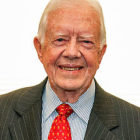
Former President Jimmy Carter
The supporters cite three examples of sitting presidents facing primary challenges who eventually failed to win a second term: President George HW Bush challenged by conservative commentator Pat Buchanan, President Jimmy Carter challenged by US Sen. Ted Kennedy and President Lyndon Johnson challenged by US Sen. Eugene McCarthy.
The three races are different and share only one thing with Trump’s situation, all four presidents were not very popular when they were challenged.
Bush saw his approval ratings decline as the late 80s recession grew deeper, taking down many high-tech and defense businesses while major banks failed under the weight of non-performing mortgage debt and investments in the housing market.
The Middle East was in turmoil when Bush sent the American military to free Kuwait from Iraq’s control.
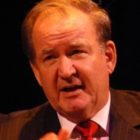
Pat Buchanan
Buchanan was a populist who opposed American intervention and focused on the sorry state of the country’s economy.
Buchanan talked about the folks coming up the hill with pitchforks to rattle the political walls of Washington.
Carter was not a popular president as inflation exploded, an oil embargo choked the economy and Iran held 52 Americans hostage for over a year after storming the US Embassy in Tehran in the name of the Iranian Revolution.
Kennedy was ill-prepared for a serious run, lost the New Hampshire primary, but was popular enough to damage Carter who lost to Reagan in the 1980 election.
Johnson was sitting on a growingly unpopular war in Vietnam and McCarthy was the peace candidate who galvanized opposition to the war and energized young people to participate in the election process.
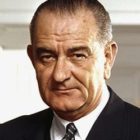
Former President Lyndon Johnson
While Johnson won the New Hampshire primary, the contest was close enough that Johnson announced he would not seek re-election.
The three losses were all related to bad economic times and foreign conflicts, neither of which is applicable to Trump.
Trump’s unpopularity is due to his policies on such things as immigration, the environment, health care, gun laws and tax changes as well as his personality that fuels an alarmingly divided country.
Some believe a primary for a sitting president helps to make the candidate better, but his supporters see things differently believing a challenge would harm Trump, which it probably would.
New Hampshire had a significant “anyone but Trump” contingent among Republicans during the 2016 primary campaign, and while that has been neutralized to some degree, the midterm elections did not indicate that New Hampshire is willing to embrace the president with open arms.
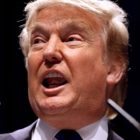
YouTube
President Donald Trump
One of Trump’s earliest supporters in the Granite State, Stephen Stepanek, a one-time lawmaker, wants to be chair of the GOP state committee and to date has yet to face a significant challenger.
Stepanek has pledged to remain neutral and believes the party should as well during the Presidential Primary as does Gov. Chris Sununu.
It is good to remember that party neutrality does not mean prominent party members do not pick sides.
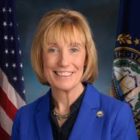
US Sen. Maggie Hassan
In 2016’s Democratic primary, all the party officeholders — US Sen. Jeanne Shaheen, senate candidate Maggie Hassan, the two US Reps. Annie McLane Kuster and Carol Shea-Porter, former party chair Kathy Sullivan and most of the Democratic state senators all backed Hillary Clinton, but party chair Ray Buckley publicly remained neutral walking with Bernie Sanders to the Secretary of State’s office to file.
When Bush was running for reelection in 1992 one of his biggest backers was then-Gov. about to be US Sen. Judd Gregg, while the party remained neutral.
Can you imagine if the party picked winners and losers in the primary? If the smoked-filled, back room made the call, would any candidate believe they had a fair opportunity to make their case to New Hampshire voters?
If that were the case, why would they come here to campaign once the party has spoken?
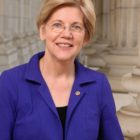
Sen. Elizabeth Warren
They would not and that really would put an end to the New Hampshire primary, which always appears to be teetering on the edge of uncertainty.
The parade of potential Democratic candidates began some time ago, with New England hopefuls Sanders and Elizabeth Warren, but others as well such as New Jersey US Sen. Cory Booker, Maryland US Rep. John Delaney, and former Maryland Gov. and former candidate Michael O’Malley to name a few.
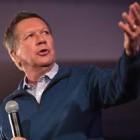
Wikipedia
Ohio Gov. John Kasich
On the Republican side, Ohio Gov. John Kasich, who finished second to Trump in the 2016 primary, has visited the state several times as has outgoing Arizona US Sen. Jeff Flake.
The Democratic field looks to be at least a dozen or more by the time filing starts at the end of 2019, and don’t be surprised if there are several Republicans as well as Trump.
To change the Republican party’s neutrality policy will take a vote of the state committee and that has yet to happen.
The state committee is full of longtime party stalwarts, many who have already said they are not interested in changing the policy.
If an effort to end the neutrality policy does come before the committee for a vote, it will signal how strong Trump’s support is among long-time activities and office holders.
But until that happens, the effort is just talk and wishful thinking among Trump activists.
Even if the policy is changed, there is nothing the Trump campaign and its supporters can do if someone decides to give the sitting president a meaningful challenge and the party’s endorsement is not going to change that.
Let the games begin.
Garry Rayno may be reached at garry.rayno@yahoo.com
Distant Dome by veteran journalist Garry Rayno explores a broader perspective on the State House and state happenings. Over his three-decade career, Rayno covered the NH State House for the New Hampshire Union Leader and Foster’s Daily Democrat. During his career, his coverage spanned the news spectrum, from local planning, school and select boards, to national issues such as electric industry deregulation and Presidential primaries. Rayno lives with his wife Carolyn in New London.
